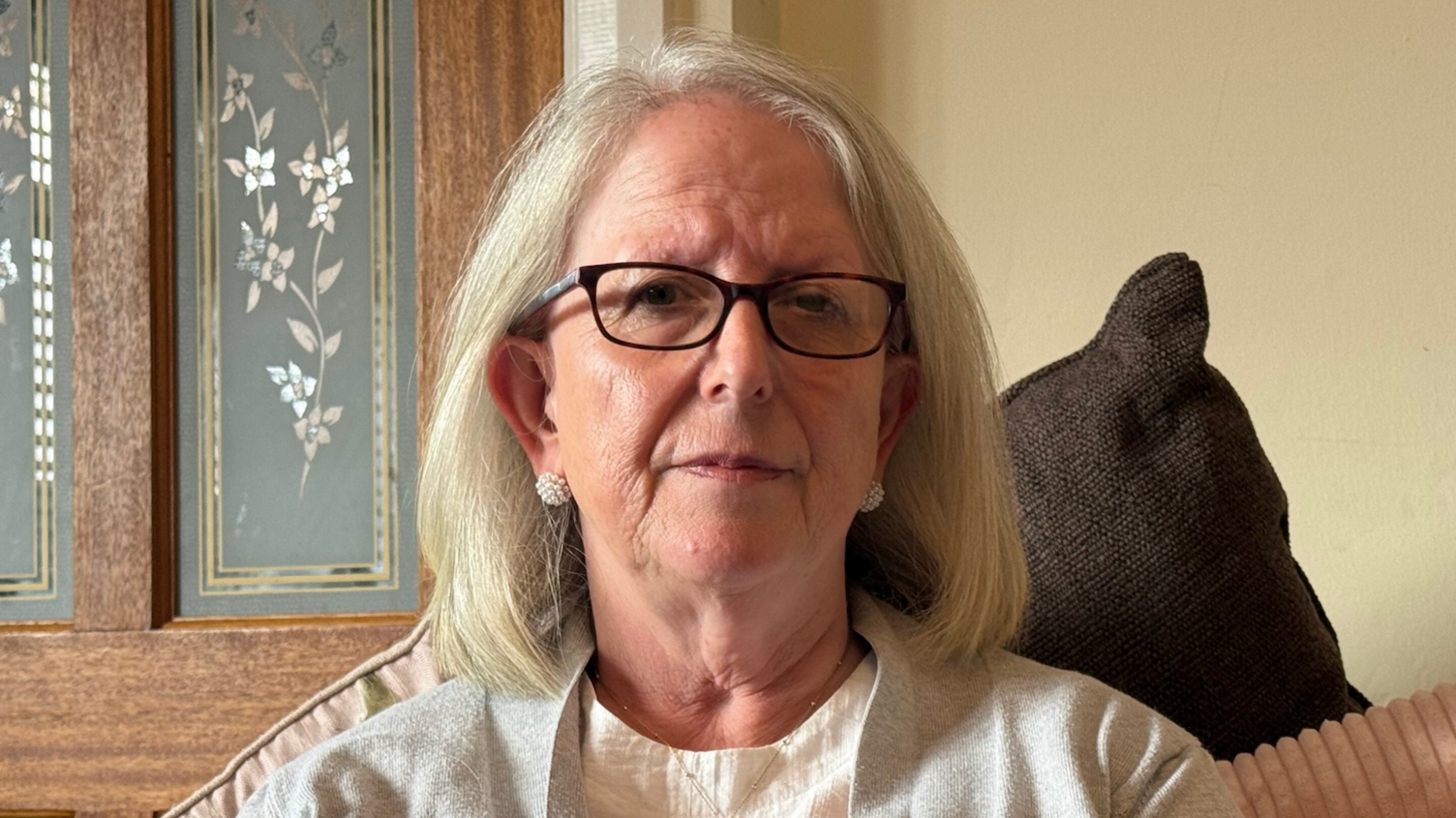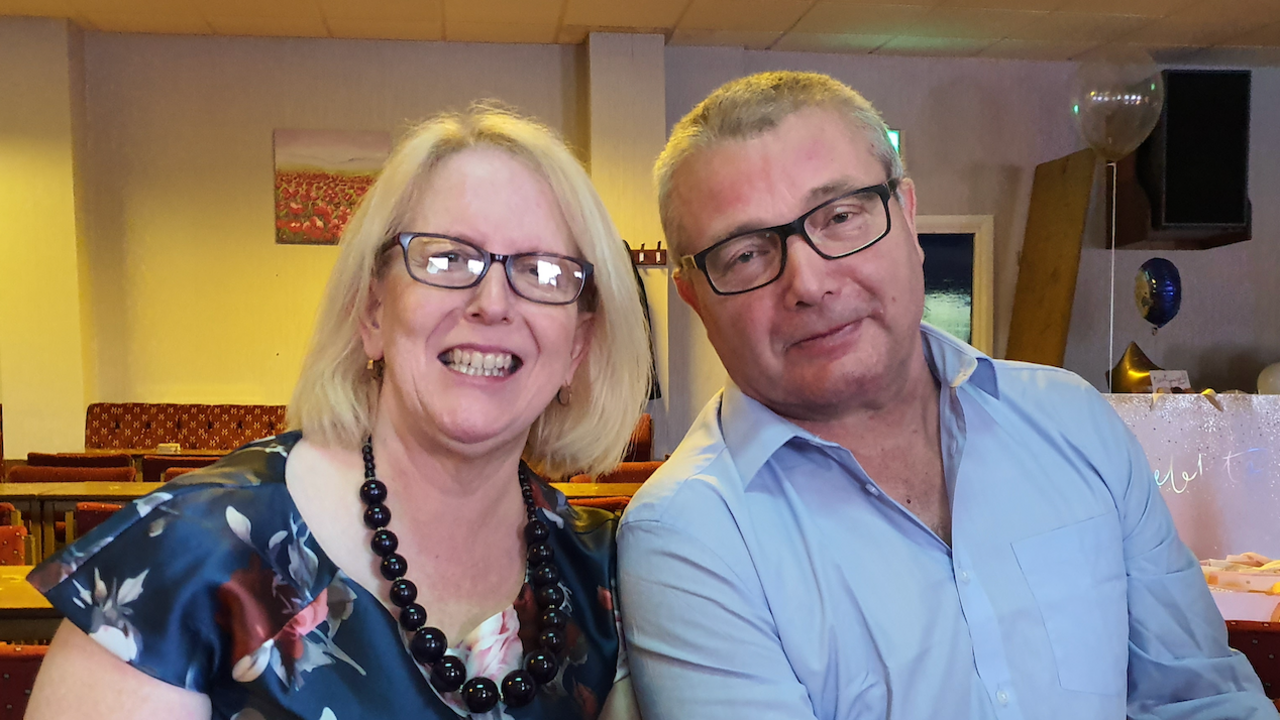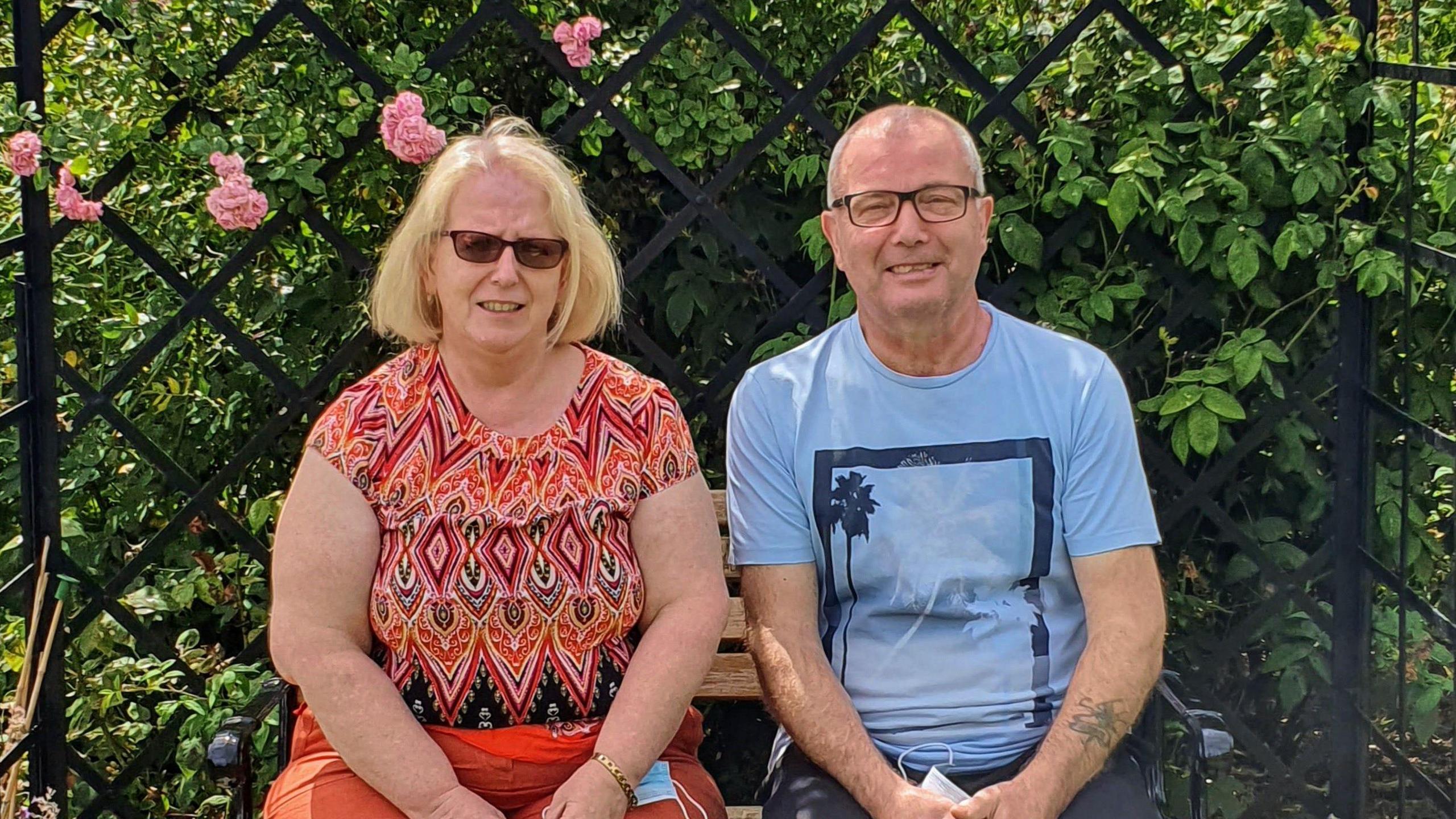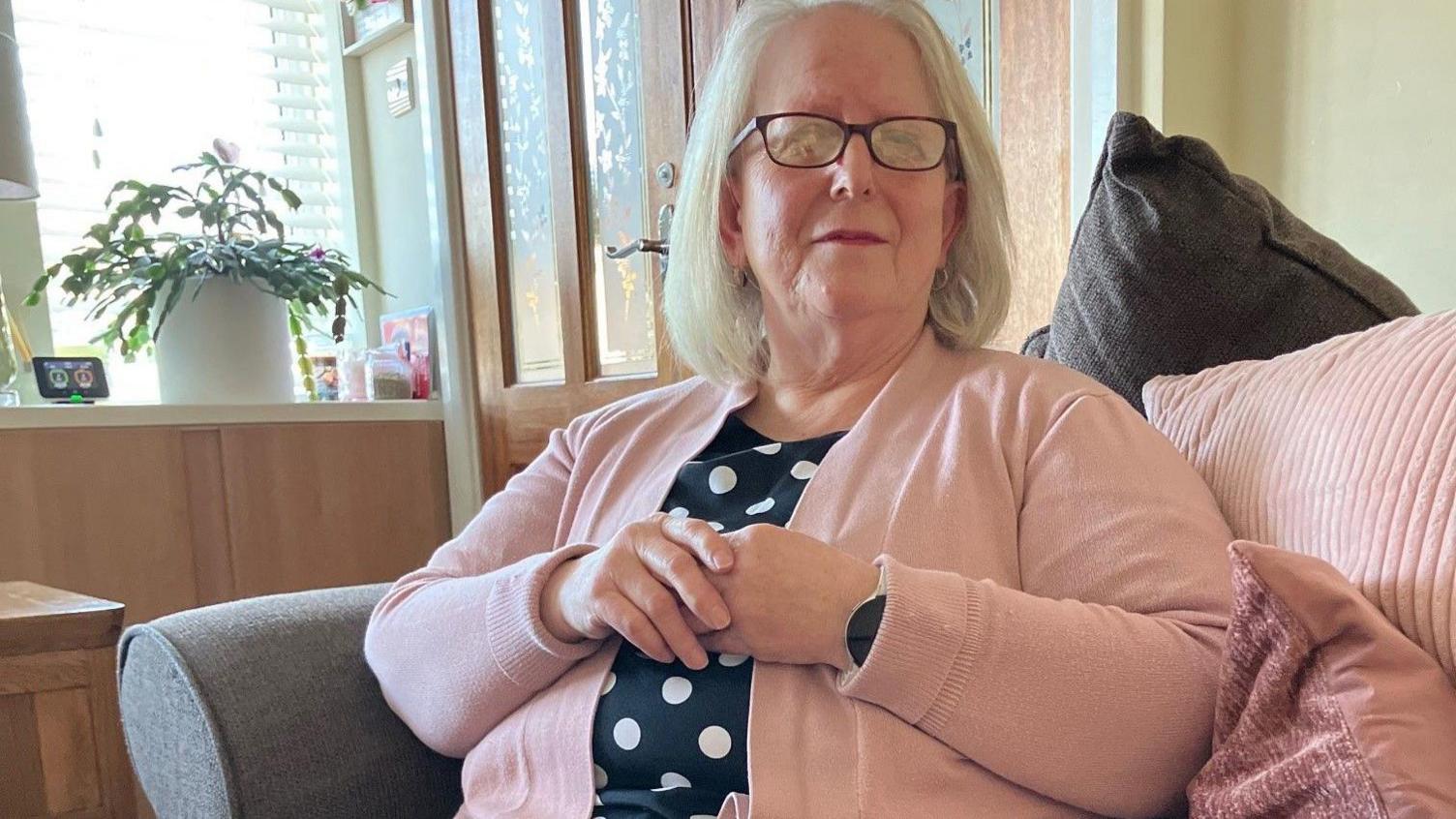Widow calls for tax exemption for terminally ill

Audrey Buckham lost her husband Eddie after two years battling pancreatic cancer
- Published
A widow who says she had to choose between buying food or paying hundreds of pounds in council tax is urging all authorities to remove the charge for terminally ill residents.
Audrey Buckham, from Houghton-le-Spring, Sunderland, became bankrupt after leaving her job to care for husband Eddie until he died aged 64 from pancreatic cancer in 2022.
Her plea comes after Manchester became the first authority to scrap council tax for households affected by terminal illness, saying it wants to "help ease the burden".
Sunderland City Council says it is considering a version of the scheme, but does have a "series of discounts, exemptions and support" available.
End of life charity Marie Curie said it hoped more councils would follow Manchester's lead and make a "big difference to the people who benefit from it".

Audrey described her late husband, who played football for West Brom and Newcastle United, as a "fun and kind" man
Up until Mr Buckham's diagnosis in 2020 the pair "lived comfortably", but their income fell significantly after he was no longer able to work.
Mrs Buckham continued to work for the NHS but eventually had to quit as her husband's condition worsened
As a result their income "just dropped", she told the BBC.
"You shouldn't have to worry that you're going to die with no money, or what will happen to the family after you die, because they'll be struggling."
'Tried to hide it'
Mrs Buckham claimed she had previously asked the local authority for a council tax reduction but was told she was not eligible as they were not on a "low income".
However, she said after leaving her job all money in pension pots and life savings "dried up".
She ran up thousands of pounds of debt - including meeting £125 monthly council tax payments - trying to support her and her husband.
"I tried to hide it, it wasn't until I had to declare myself bankrupt and I went to Eddie 'we're struggling'.
"We cried together and then he was worrying about me, the family, the house.
"If you're palliative, everybody should be able to get it regardless, it shouldn't just be if you're on a lower benefit."

Manchester City Council has become the first to bring in a support package for terminally ill patients
In Manchester, council tax is reduced to zero for the entire household if one of the tenants has a terminal diagnosis and less than a year to live.
The discount is also applied for up to twelve months, or the start of the next financial year, after the person's death. It is not based on income.
Jamie Thunder, from Marie Curie, said councils needed to do more to provide specific support for those with terminal illness.
"For anyone, losing a large amount of income overnight would cause problems," he said.
"You've still got the same bills, you've still got the same rent.
"There's also lots of other types of bills that could really increase at the same time... like energy costs [and] medical devices that they need to use."
He welcomed the approach in Manchester, adding: "Although local authorities are under financial pressure, this isn't going to break the bank.
"We're not talking about a large number of people, we are talking about a big difference to the people who benefit from it."
In response, Sunderland City Council said it was "very sorry to hear about Audrey and Eddie".
A spokesperson said it "would always urge residents to contact the council if they are having any financial difficulties".
In addition to council tax discounts, discretionary reductions were considered on individual circumstances, the council said.
The Department for Work and Pensions previously said carers may be able to receive bereavement support and there was a range of support available.
Follow BBC Sunderland on X, external, Facebook, external, Nextdoor and Instagram, external.
Get in touch
Do you have a story suggestion for BBC Wear?
- Published26 June

- Published3 February
